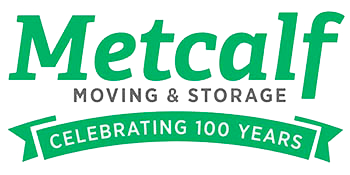METCALF MOVING BLOG
Moving Seniors: A Compassionate Approach to Later-Life Moves
Moving can be challenging at any age, but for seniors, relocating often involves unique emotional, physical, and logistical considerations. Whether downsizing from a family home, moving to a retirement community, or relocating to be closer to family, senior moves require extra sensitivity and specialized planning to ensure a smooth and respectful transition.
Understanding the Emotional Impact
For many seniors, their home represents decades of memories, achievements, and personal history. The decision to move can trigger feelings of loss, anxiety, and uncertainty about the future. It’s important to acknowledge these emotions and provide ample time for processing the change.
Involve seniors in the decision-making process as much as possible. When they feel they have control over their household move, rather than having it imposed upon them, they’re more likely to embrace the transition positively. Listen to their concerns and preferences, and work together to find solutions that honor their wishes while meeting practical needs.
Start with Comprehensive Planning
Senior moves often require more time and planning than typical relocations. Begin the process several months in advance to allow for careful consideration of all aspects of the move. This extended timeline reduces pressure and allows for thoughtful decision-making rather than rushed choices.
Create a detailed moving plan that includes timelines for various tasks, essential contacts, and contingency plans for potential challenges. Having a structured approach can provide comfort and confidence throughout the moving process. Consider involving adult children or other family members in the planning process to provide additional support and perspective.
Downsizing with Dignity
Many senior moves involve downsizing from a larger family home to a smaller space. This process can be emotionally challenging as it often requires parting with possessions that hold sentimental value. Approach downsizing gradually and with sensitivity.
Help seniors categorize their belongings into items to keep, donate, gift to family members, or dispose of. Consider hosting a family gathering where relatives can choose meaningful items, creating positive memories around the distribution of possessions. For items that can’t be kept but hold sentimental value, consider taking photographs to preserve the memories.
Address Physical Limitations
Seniors may have physical limitations that affect their ability to participate in the moving process. Consider factors such as mobility issues, chronic conditions, or medication schedules when planning the move. Professional movers experienced in senior relocations can provide specialized services that accommodate these needs.
Ensure that seniors have comfortable seating, access to medications, and regular breaks during the moving process. If possible, consider having seniors stay with family or friends during the most intensive moving days to reduce stress and prevent overexertion.
Coordinate Healthcare and Services
Moving often requires transferring healthcare providers, prescription services, and other essential services. Help seniors research healthcare options in their new location and facilitate the transfer of medical records. If moving to a different area, ensure that specialists and preferred healthcare providers are available.
Update essential service providers such as banks, insurance companies, and government agencies about the address change. Help seniors set up crucial services like utilities, internet, and phone service in their new home before the move to ensure continuity of essential communications.
Focus on Safety and Accessibility
When setting up the new home, prioritize safety and accessibility features. Ensure that frequently used items are easily accessible, pathways are clear and well-lit, and safety features like grab bars and non-slip surfaces are installed where needed.
Consider the layout of the new space and how it will accommodate any mobility aids or special equipment. Professional senior move managers can provide valuable insights into creating a safe and comfortable living environment that meets specific needs.
Maintain Social Connections
Social isolation can be a significant concern for seniors who move away from established communities and support networks. Help seniors identify opportunities to maintain existing relationships and build new connections in their new location.
Research community centers, religious organizations, volunteer opportunities, and social groups in the new area. Many retirement communities and senior housing facilities offer social programs and activities that can help new residents integrate into the community.
Professional Senior Moving Services
Consider hiring professionals who specialize in senior relocations. These specialists understand the unique challenges of moving older adults and can provide services such as downsizing assistance, packing, unpacking, and setting up the new home. They can also offer emotional support and guidance throughout the process.
Professional senior move managers can coordinate all aspects of the move, from initial planning to final setup, allowing families to focus on providing emotional support rather than managing logistics.
Compassionate Senior Moving Solutions!
Moving seniors requires special care, patience, and understanding. Our experienced team provides compassionate moving services tailored to the unique needs of older adults. Contact us today to learn how we can help make your senior relocation as smooth and stress-free as possible.












